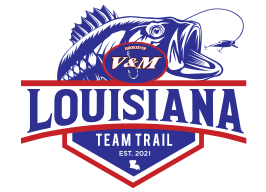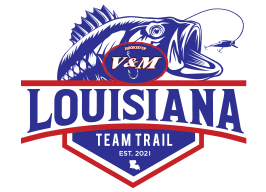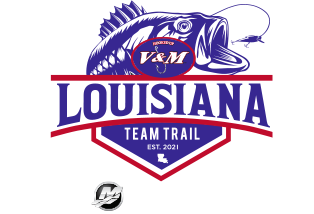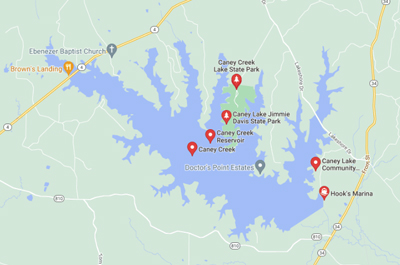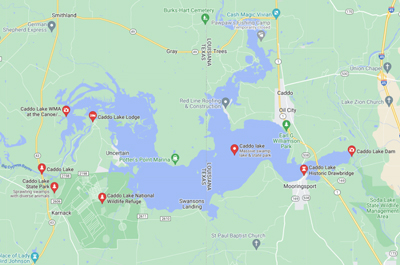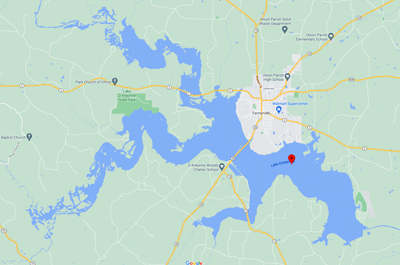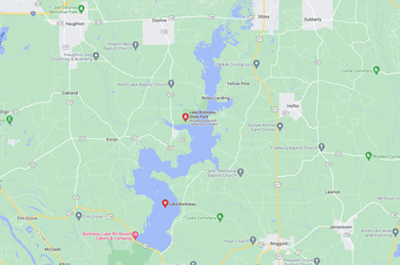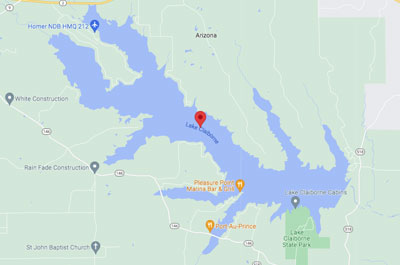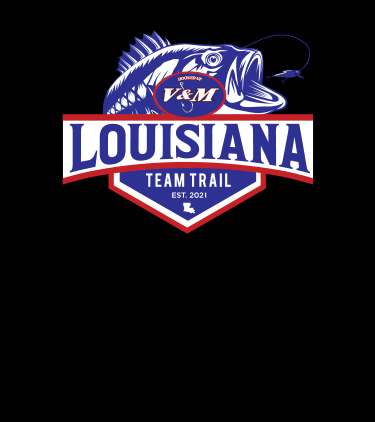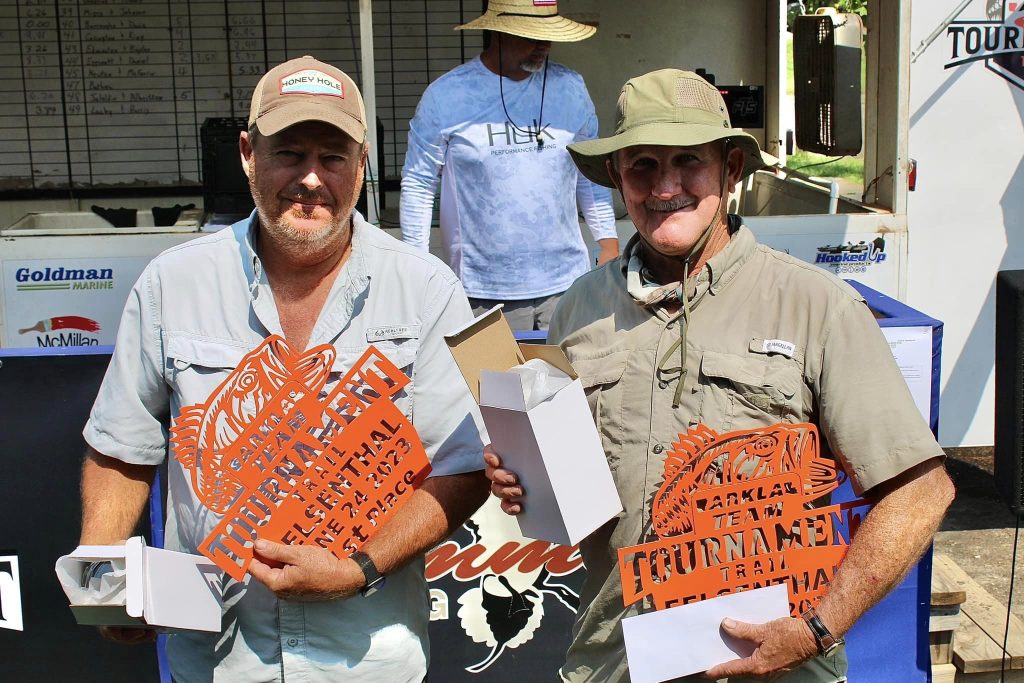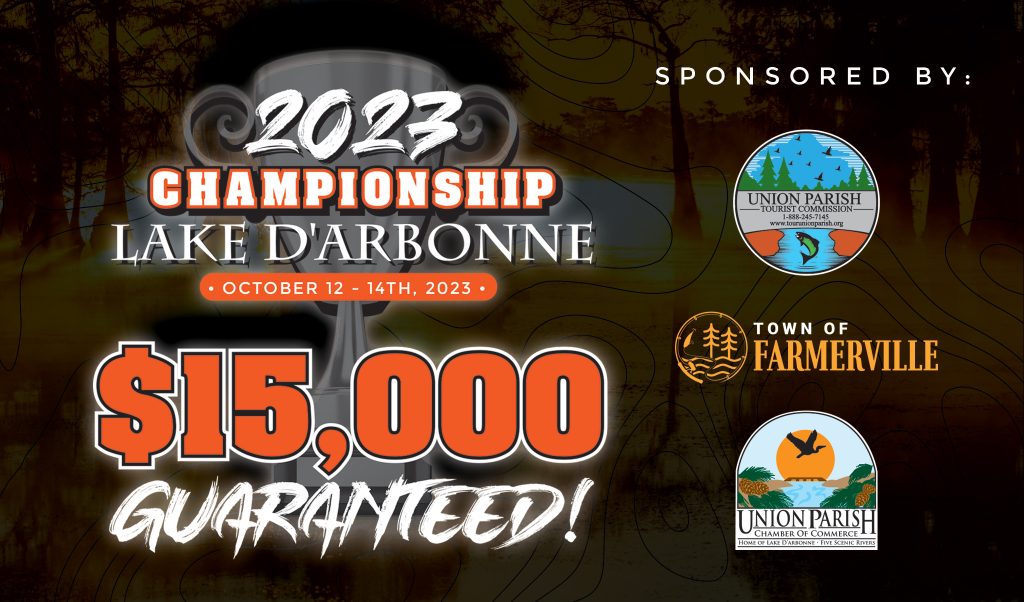GET PAID!
We are excited to introduce the largest paying bass fishing tournament circuit in the area! Tournaments will pay 1 place for every 5 entries with 100% payback and $5,000 Guaranteed to the winning team every tournament!
FOCUSED ON YOU!!!
The Shreveport Bossier Sports Commission is the only organization 100% focused on bringing sporting events to the Shreveport-Bossier area.
SCHEDULE
We are excited to present our 2024 Tournament Schedule! We strive to provide a challenging and competitive schedule for all of our anglers.

Why fish The Louisiana Team Trail?
BIG PAYOUTS!
That's right! The Louisiana Team Trail has some of the largest payouts in the state! Don't miss out on your opportunity for a big payday, sign up today!
$5,000.00 GUARANTEED!
The Louisiana Team Trail pays $5000.00 guaranteed every tournament to the winners with 100% payback!
$250 ENTRY FEE PER TEAM
Entry fees for all Louisiana Team Trail tournaments are $250 per team.
$40 YEARLY MEMBERSHIP FEE
Each team member will be required to pay a $40 yearly membership fee.
Sponsors

Schedule
CANEY LAKE
MARCH 2, 2024
Nestled amidst the picturesque pine forests of the Caney Creek Wildlife Management Area, this reservoir offers anglers a serene and tranquil fishing experience.
One of the primary draws of Caney Creek Reservoir is its excellent largemouth bass fishing. Anglers from all around the region visit the lake in pursuit of trophy-sized bass, as the lake boasts a healthy population of these prized gamefish.
In the spring and fall, Caney Lake is a lunker bass factory. The 15.97-pound lunker caught by Greg Wiggins in Caney in February 1994 still stands as the lake record. But hardly a month goes by that somebody doesn’t bring a bass to the scales that tops the 10-12 pound mark. In fact, six of the top ten largemouth bass records—all over 15 pounds—that have been caught in Louisiana came from this small impoundment formed by damming Caney Creek in 1986.
CADDO LAKE


CO-HOSTED BY: THE SHREVEPORT BOSSIER SPORTS COMMISSION
Weigh-in sponsored by: Equipment Share
MARCH 30TH, 2024
Caddo Lake a 25,400-acre (10,300 ha) lake and bayou (wetland) on the border between Texas and Louisiana, in northern Harrison County and southern Marion County in Texas and western Caddo Parish in Louisiana. The lake is named after the Caddoans or Caddo, Native Americans who lived in the area until their expulsion by the United States in the 19th century. The US forced most of them to move west to Indian Territory.
LAKE D'ARBONNE
SPONSORED BY: D'ARBONNE MARINA
APRIL 27, 2024
Lake D'Arbonne was constructed in the early 1960's when the Louisiana Department of Transportation and Development constructed a dam and spillway across Bayou D'Arbonne.
Recreation on Lake D'Arbonne is tremendously popular among locals and visitors, and record freshwater catches of bass, crappie, catfish and bream make Lake D'Arbonne a fishing haven. Wide open areas of the lake, about seven miles from the park, appeal to water skiers and pleasure boaters. The boat launch at the park opens up all of these opportunities to outdoorsmen.
Lake D’Arbonne is a reservoir located in Union Parish in north Louisiana. Isolated in a rural area, it is a popular man-made fishing area that has a combined estimated area of 15,250 acres.
LAKE BISTENEAU


CO-HOSTED BY: THE SHREVEPORT BOSSIER SPORTS COMMISSION
Weigh-in sponsored by: Simmons Sporting Goods
MAY 11, 2024
Lake Bistineau was created by a flood after a log jam in 1800, but the lake gradually drained over time. In 1935, construction on a dam began, and the park was opened in 1938.
LAKE CLAIBORNE
SPONSORED BY: JTB RENTALS
JUNE 29, 2024
Lake Claiborne is a reservoir located near the town of Homer, Louisiana, United States. Isolated in a rural area, it is a popular man-made fishing area that has a combined estimated area of 6,400 acres.
The lake was created by the construction of Clairborne Lock and Dam by the United States Army Corps of Engineers in 1970. The lock is for water management and navigation; no hydroelectric power is produced here.The dam was built during the terms of Governors Jimmie Davis and John McKeithen.
